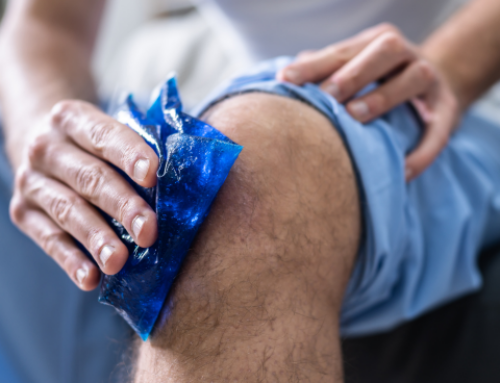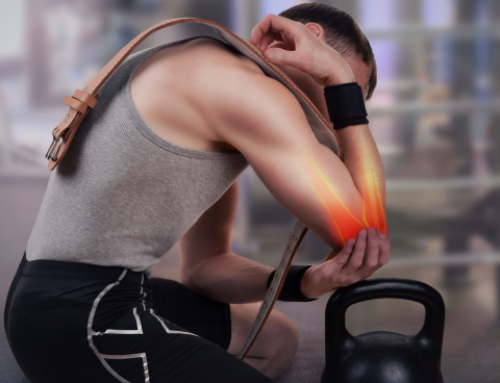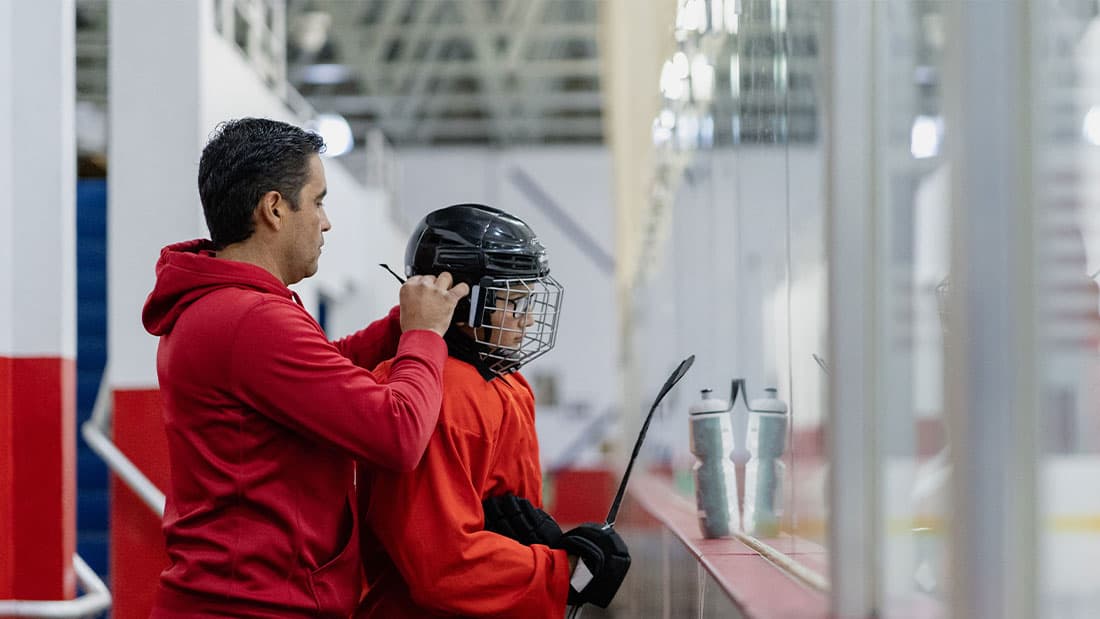3 Ways You Can Spot a Teammate’s Concussion
![]()
As the clock ticks down, you release the football—a perfect pass to your receiver in the end zone. In that moment, your focus is on making a winning play. What you don’t see: the rest of your teammates going head-to-head with their opponents, the crack of their helmets as they make contact, and one of them suffering a concussion.
RELATED: What Doctors Aren’t Telling You About Your Kid’s Concussion Recovery
At some point, we become numb to the seriousness of sprains, broken bones, torn ligaments and concussions associated with contact sports. But concussions are getting a great deal of attention from doctors and researchers as adolescents and adults who sustain repeated head trauma are increasingly being diagnosed with traumatic brain injury (TBI) or chronic traumatic encephalopathy (CTE), an aggressive neurological disorder similar to Alzheimer’s.
Long-term side effects are still largely unknown, but we are learning that head injuries, especially repeated head trauma, has strong links to mental health problems and substance abuse. Fortunately, identifying symptoms is easy. Here are three common ways to spot traumatic brain injuries and know when to see a doctor.
1. Physical symptoms

The symptoms of TBI include chronic headaches, dizziness, blurred vision and difficulties in balancing, focusing, and remembering. Also, extreme sleep pattern changes—getting too much or too little sleep—are common.
An estimated 2 million cases are reported annually, with nearly 52,000 fatalities. Experts believe the actual number is closer to 3.8 million, considering many people either do not seek help and that cases are underreported.
RELATED: STUDY: Football Practice Without Helmets Reduces Concussions
2. Difficulty in school
A drop in grades, extreme emotional problems (e.g., sudden outbursts of anger or crying for no clear reason), and an inability to concentrate or remember could be early signs of TBI or CTE. Other symptoms could include impulsiveness with parents, teachers, boyfriends or girlfriends.
3. Behavioral changes

Other potential signs include extreme behavioral problems, depression, an increase in risky behavior, alcohol or drug use, lack of interest in everyday activities, and an increased or decreased sex drive.
Research shows students in grades 7 through 12 who suffered at least one concussion are two to four times more likely to develop substance abuse problems. Conversely, drug and alcohol abuse has been implicated in the incidence of TBI. A study found that 30 percent of patients needing TBI rehabilitation were intoxicated at the time of their injuries. In addition, drug and alcohol abuse can have a negative impact on the body’s ability to recover quickly from any trauma.
Replay. The clock ticks down, you release the ball, and a perfect pass flies to your receiver in the end zone. After the play, you notice your injured teammate attempting to find his balance. You’ve recently seen him struggle in the classroom and know he hasn’t been himself lately. With your new knowledge and awareness of symptoms and risks associated with traumatic brain injury and chronic traumatic encephalopathy, you insist he visit a doctor for further tests.
RELATED: Why Reducing Stress Might Speed Up Concussion Recovery
Some of the best lessons learned in sports carry athletes through life. Avoiding traumatic brain injury and having your teammates’ backs (on and off the field) are two of the most important ones.
[cf]skyword_tracking_tag[/cf]RECOMMENDED FOR YOU
MOST POPULAR
3 Ways You Can Spot a Teammate’s Concussion
![]()
As the clock ticks down, you release the football—a perfect pass to your receiver in the end zone. In that moment, your focus is on making a winning play. What you don’t see: the rest of your teammates going head-to-head with their opponents, the crack of their helmets as they make contact, and one of them suffering a concussion.
RELATED: What Doctors Aren’t Telling You About Your Kid’s Concussion Recovery
At some point, we become numb to the seriousness of sprains, broken bones, torn ligaments and concussions associated with contact sports. But concussions are getting a great deal of attention from doctors and researchers as adolescents and adults who sustain repeated head trauma are increasingly being diagnosed with traumatic brain injury (TBI) or chronic traumatic encephalopathy (CTE), an aggressive neurological disorder similar to Alzheimer’s.
Long-term side effects are still largely unknown, but we are learning that head injuries, especially repeated head trauma, has strong links to mental health problems and substance abuse. Fortunately, identifying symptoms is easy. Here are three common ways to spot traumatic brain injuries and know when to see a doctor.
1. Physical symptoms

The symptoms of TBI include chronic headaches, dizziness, blurred vision and difficulties in balancing, focusing, and remembering. Also, extreme sleep pattern changes—getting too much or too little sleep—are common.
An estimated 2 million cases are reported annually, with nearly 52,000 fatalities. Experts believe the actual number is closer to 3.8 million, considering many people either do not seek help and that cases are underreported.
RELATED: STUDY: Football Practice Without Helmets Reduces Concussions
2. Difficulty in school
A drop in grades, extreme emotional problems (e.g., sudden outbursts of anger or crying for no clear reason), and an inability to concentrate or remember could be early signs of TBI or CTE. Other symptoms could include impulsiveness with parents, teachers, boyfriends or girlfriends.
3. Behavioral changes

Other potential signs include extreme behavioral problems, depression, an increase in risky behavior, alcohol or drug use, lack of interest in everyday activities, and an increased or decreased sex drive.
Research shows students in grades 7 through 12 who suffered at least one concussion are two to four times more likely to develop substance abuse problems. Conversely, drug and alcohol abuse has been implicated in the incidence of TBI. A study found that 30 percent of patients needing TBI rehabilitation were intoxicated at the time of their injuries. In addition, drug and alcohol abuse can have a negative impact on the body’s ability to recover quickly from any trauma.
Replay. The clock ticks down, you release the ball, and a perfect pass flies to your receiver in the end zone. After the play, you notice your injured teammate attempting to find his balance. You’ve recently seen him struggle in the classroom and know he hasn’t been himself lately. With your new knowledge and awareness of symptoms and risks associated with traumatic brain injury and chronic traumatic encephalopathy, you insist he visit a doctor for further tests.
RELATED: Why Reducing Stress Might Speed Up Concussion Recovery
Some of the best lessons learned in sports carry athletes through life. Avoiding traumatic brain injury and having your teammates’ backs (on and off the field) are two of the most important ones.
[cf]skyword_tracking_tag[/cf]











